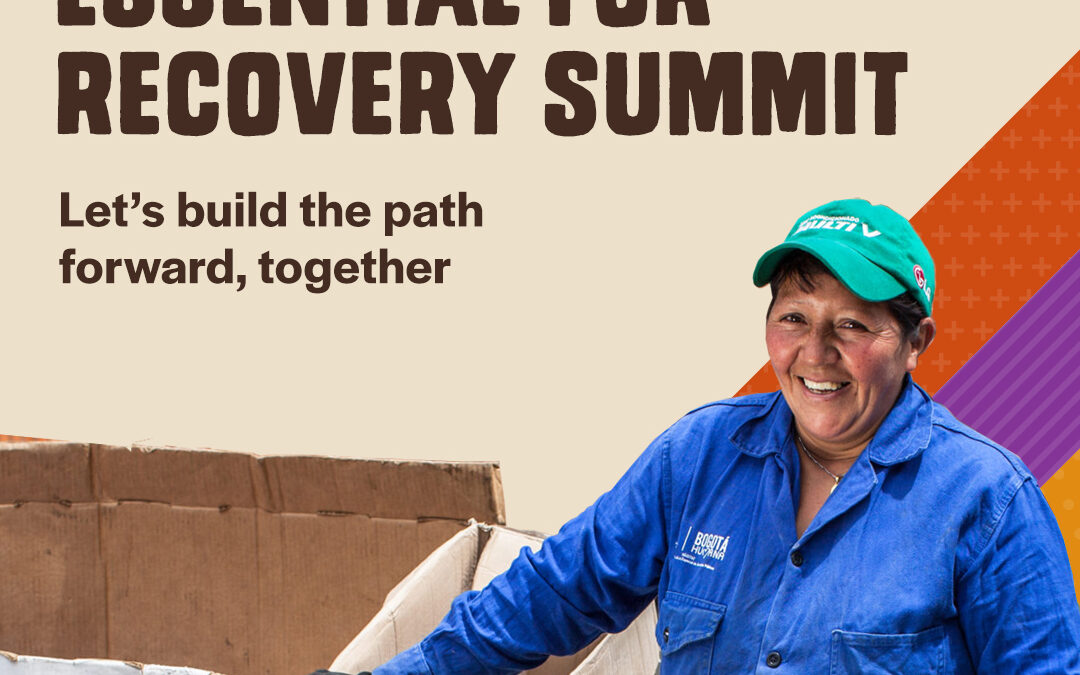
Sep 14, 2021
Workers who risked their health to provide essential services during the pandemic joined with actors, global union leaders and policymakers in a first-of-its-kind worldwide gathering to share their experiences and demand a response that urgently and effectively protects all people, and especially the most marginalized.

Yalitza Aparicio spoke in support of government action to ensure essential workers have decent wages and safe work.
“COVID-19 has taught us about the importance of workers in all sectors and recognize that they deserve dignified work and they are important in the world economy,” said actor Yalitza Aparicio. “Governments know about this. But, what are they doing about it?” Aparicio was among dozens of speakers during the September 8–10 Essential For Recovery virtual summit who pointed to the need for action to ensure decent wages, rights and social protections like paid sick leave so workers deemed “essential” during the pandemic will not be left behind after the crisis passes.
As the Summit made clear, essential workers often work in the informal economy. “They have no rights, no minimum wages, no rule of law, no social protection,” said Sharan Burrow, general secretary of the International Trade Union Confederation (ITUC). “We have to get a minimum living wage to all essential workers. We have to afford them collective bargaining rights. And we have to put in place universal social protection in safe workplaces.”
Organized by the Open Society Foundations and hosted by actor Sophia Bush, Essential For Recovery focused on four themes: increased income and improved working conditions; healthy and safe workplaces and access to health care; social protection benefits and support for vulnerable workers; and ending gender-based violence and harassment at work.
The Solidarity Center co-sponsored the event, along with HomeNet International, ITUC, StreetNet International Alliance of Street Vendors, UNI Global union and WIEGO.
Catch the full three one-hour sessions:
Unions, Collective Action Key to Building Back Better
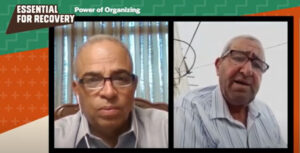
Mithqal Zinati (right), a coordinator for Jordan’s agricultural sector, says workers need the right to form unions to ensure safe workplaces.
In Jordan, where workers have limited rights to form unions, Mithqal Zinati, a coordinator for the country’s agricultural sector, says the government’s action “keeps thousands and tens of thousands of workers from being part of providing solutions to the problems facing the agriculture sector. This eliminates the role of workers to defend their rights and protect their interests and to see beneficial gains.
“For everyone, having a union is very beneficial. For farmers and for workers at the same time.”
As the pandemic highlighted, workers with unions often more readily had access to personal protective equipment (PPE) and decent wages. Summit participants discussed the power of grassroots organizing to improve workers’ lives, and described how, over the last year, essential workers in the formal and informal economies went on strike to win access to PPE and vaccines. They took to the streets and to social media to demand more democratic societies and governments.
Maria do Carmo, a Brazilian street vendor, organized street vendors into a nationwide organization, the National Union of Hawkers, Street and Market Vendor Workers of Brazil (UNICAB), and through their collective power, raised awareness of their issues with politicians. “Today we have respect from City Hall,” she said.
“Over the past two days, we’ve seen proof of the effectiveness of collective action, and of the importance of eliminating gender inequities. But at the heart of it all is power,” said Bush, at the start of the third and final session.
Women Targets of Gender-Based Violence, Burdened with Carework
The pandemic also forced many to work from home where women disproportionately engaged in care work. Globally, women lost $800 billion in income due to COVID-19.
Mercedes D’Alessandro, the first national director of Economy, Equality and Gender in Argentina, described a study in which she found that during the pandemic, three-quarters of women did unpaid care work, amounting to 22 percent of GDP—up from 16 percent of GDP before COVID-19.
“The truth is that the increase in time that women dedicate to care activities means also a smaller opportunity to go out and look for a job, continue with their jobs, develop their careers or study, graduate from university,” she said.

Shirley Pryce, president of the Jamaica Household Workers Union, urges governments to ratify a treaty ending gender-based violence at work.
Women also experienced high levels of violence during lockdowns, further highlighting the need for governments to ratify an International Labor Organization (ILO) treaty (Convention 190) to end gender-based violence at work.
“Violence and harassment can happen anywhere, and it can happen to anyone,” said Shirley Pryce, president of the Jamaica Household Workers Union. “But this must not be tolerated. It must stop. Let us push together for governments to ratify this very important convention.”
C190 covers wherever work is performed, such as where workers take a rest break or meal or use sanitary, washing or changing facilities, and includes commuting to and from work.
“We are seeing a new normal. Home has become a workplace,” said Rose Omamo, general secretary of the Amalgamated Union of Kenya Metal Workers, a Solidarity Center partner. Employers must ensure workers have what they need to work from home, including safe workplaces, she said.
Building to a Better, More Equitable Tomorrow

Artists like Sinkane performed during the Essential Worker Summit.
Omamo was in conversation with Rosa Pavanelli, general secretary of Public Services International. The summit provided opportunities for shared discussion, “lightening rounds” featuring workers telling their stories and urging action, and videos showcasing worker issues such as the Tunisian General Labor Union (UGTT)’s documentary on women agricultural workers seeking safer transportation.
Essential for Recovery also featured multimedia presentations by performance artists such as Khansa, a singer, songwriter and dancer from Lebanon; U.S. actor Martin Sheen; Sonam Kalra of the Sufi Gospel Project; and Ahmed Abdullahi Gallab Sinkane, a Sudanese-American musician.
“I stand with all essential workers around the globe. The domestic and agricultural workers, waste pickers, street vendors, caregivers and home-based workers who make our world run,” said Sinkane, before performing U’Huh.
“During the pandemic, we saw how essential they really are. They deserve a living wage, proper employment conditions and a safe and healthy workplace,” he said. “Let’s build forward to a better, more equitable tomorrow.”
Key participants in Essential For Recovery also included Christy Hoffman, UNI Global Union general secretary; Maina Kiai, former United Nations Special Rapporteur on the rights to freedom of peaceful assembly and of association; Guy Ryder, ILO director general and Ai-jen Poo, National Domestic Workers Alliance executive director.
Sep 7, 2021
Some 70 Bolt food delivery drivers in Ukraine are waging a digital strike after their wages were reduced by 50 percent, a move that built on the drivers’ discontent with lack of health coverage and cutbacks in bonus payments, a growing global phenomenon. The platform workers are turning off their apps each day at 2 p.m., making it difficult for the company to fulfill evening food orders.
“Transportation costs are the same, risks are the same, and money is half as much. It’s outrageous!” says Artem, a Bolt courier. Like many striking couriers, his backpack features a sticker supporting the strike.
Further cutting into drivers’ wages, he says, is the need to pay for constant bike or scooter repairs.
“For seven days of eight to ten hours of work, a courier covers more than 1,000 kilometers (622 miles) amid city traffic. Every day, you face potholes on the road, there is a constant need of repair, replacing some parts,” he says. “Income no longer covers risks.”
Bolt Founder a Billionaire, Workers Struggle for Pay
Although Bolt is a familiar brand in the United States for its green ride-sharing scooters scattered across urban areas, elsewhere in the world, the company rivals Uber as a delivery service, with 75 million customers in Africa and Europe, especially eastern Europe. In Ukraine, Bolt has 3.5 million customers served by fewer than 100 delivery drivers.
The company is valued at more than $2 billion, according to its Estonian founder Markus Willig, and raised $20 million in funding from the World Bank’s International Finance Corporation this year. With total fundraising at $596 million, the company seeks to expand further into Africa and plans to add markets in Latin America and Asia Pacific through franchising agreements.
Yet, even as Willig, 27, has become the third richest person in Estonia through Bolt profits, couriers who daily face dangerous conditions receive no income when they are injured and cannot work.
“You constantly hear about couriers getting into an accident, receiving medical treatment, having surgery,” says Artem. “If you suffer yourself, there must be a certain ‘cushion’ for you not to starve at least for the duration of treatment.”
Bolt workers in Ukraine are calling for a return to the previous bonus and payment structure, and pay for waiting at restaurants for orders. They also want health and life insurance and say the company should seek legislative measures to ensure scooters are registered.
Platform Workers Join Together to Demand Rights
Well before the COVID-19 pandemic boosted home delivery services, the demand for couriers and other essential workers was increasing around the world. But because they are classified as “independent contractors,” platform workers are ineligible for the same benefits as workers in the formal economy, and typically are not covered by a country’s labor laws.
Like Bolt workers in Ukraine, couriers from Nigeria to Colombia are joining together to demand their fundamental rights to decent work—living wages, social protections like health care, and measures to improve job safety.
Workers at Bolt’s Ukraine rival, the Spanish-owned Glovo, pushed for an increase in wages and paid insurance, revealing brutal working conditions in the process. Across Ukraine, unions are engaged in creative campaigns to reach gig economy workers, a campaign worker rights attorney George Sandul discusses in depth on The Solidarity Center Podcast.
In Colombia, Rappi platform delivery workers last year formed the Union of Platform Workers (UNIDAPP), to counter fluctuating pay rates for individual delivery jobs, unexplained fines levied by the company, and the arbitrary barring of workers from the platform to accept jobs.
Bolt workers in other countries are taking action as well. Earlier this year, the Independent Workers’ Union of Great Britain protested lack of safety for drivers following the murder of Bolt driver Gabriel Bringye. Research published by Oxford University in March found that Bolt and Amazon had the worst working conditions for gig economy workers in the UK.
In Tbilisi, Georgia, couriers at Bolt went on strike in March to protest lowered wages and what they say is a manipulated bonus system and unwarranted layoffs. Georgia couriers at Glovo also protested this past spring over lack of medical coverage for work-related injuries and changes to the app-based algorithm making it more difficult to get orders..
Bolt drivers in Lagos, Nigeria, part of the Professional E-hailing Drivers and Private Owners Association, went on strike in April to protest poor working conditions and pay. Bolt recently was forced to increase fares in Kenya after drivers in Nairobi threatened to strike over high fuel prices.
As Artem says, “We have to remind them that in a food delivery company, couriers are the ones who actually deliver, and without them the company does not exist.”
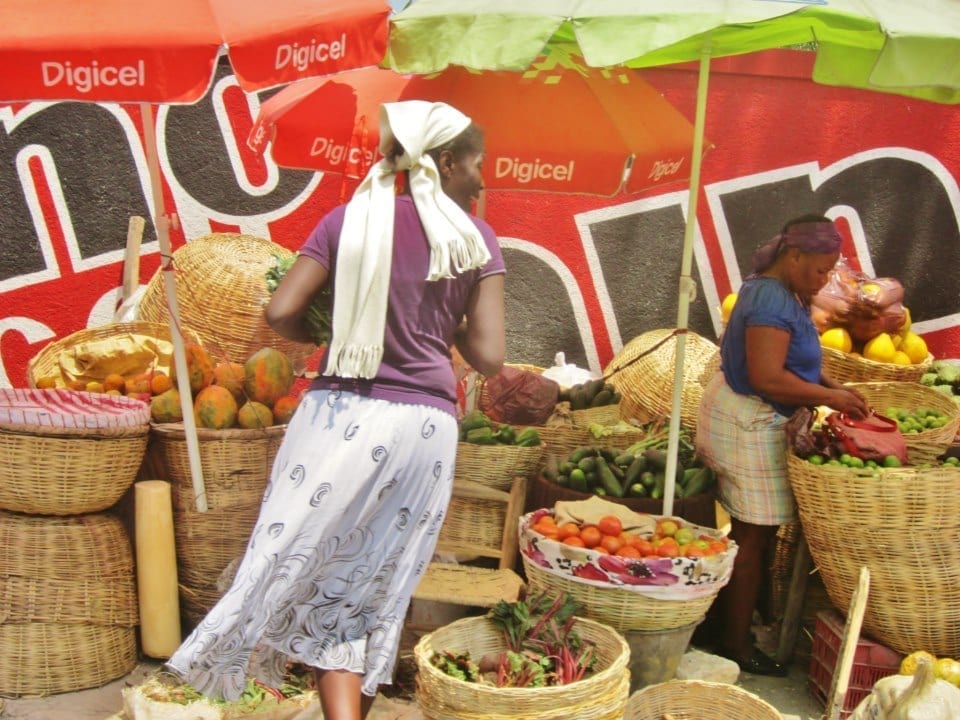
Aug 25, 2021
In Nigeria, through a coordinated campaign by the Organization of Trade Unions of West Africa (OTUWA), West African Informal Sector Workers Network Working Group, Federation of Informal Workers’ Organizations of Nigeria (FIWON), Nigeria Labor Congress (NLC) and Trade Union Congress of Nigeria (TUC), unions are demanding increased government investment in healthcare for informal-sector workers and their families—including the provision of adequate hospitals and clinics in marginalized communities.
“Healthcare is a human right!” said FIWON General Secretary Gbenga Komolafe at a press conference in Abuja this month, adding that the COVID-19 pandemic has further exposed Nigeria’s inadequate healthcare system, especially in the informal sector. “We will use all available legitimate means to push this campaign. We will do rallies and protest on the street.”
NLC and TUC representatives at the conference also lent their organization’s support to the campaign.
Although the Economic Community of West African States (ECOWAS) recommends that member states allocate 15 percent of their budget to healthcare, Nigeria budgets only 4 to 6 percent—among the lowest in Africa, said Komolafe.
The region’s signatory governments are required by ECOWAS Fundamental Principles to promote and protect human rights in accordance with the African Union (AU) Charter on Human and Peoples’ Rights—including provision of social protections such as healthcare—but Nigeria’s workers are not adequately covered, said OTUWA Executive Secretary John Odah.
“We now have a responsibility to … call on government to put more funding into social protection, especially healthcare,” said Odah.
OTUWA’s “Healthcare Is a Human Right” campaign, launched in Abuja in March last year, unites OTUWA affiliates in a fight for equal and fair health care access for all who live within the ECOWAS region.
2 billion informal-sector workers comprising 61 percent of the world’s workforce are not covered or are insufficiently covered by laws or working arrangements guaranteed to formal workers. Although informal-economy workers create more than one-third of the world’s gross national product, they have little power to advocate for social security benefits like healthcare, living wages and safe and secure work. By joining in unions or other worker associations, workers in the informal economy can gain the collective power they need to make change, according to an International Labor Organization (ILO) study.
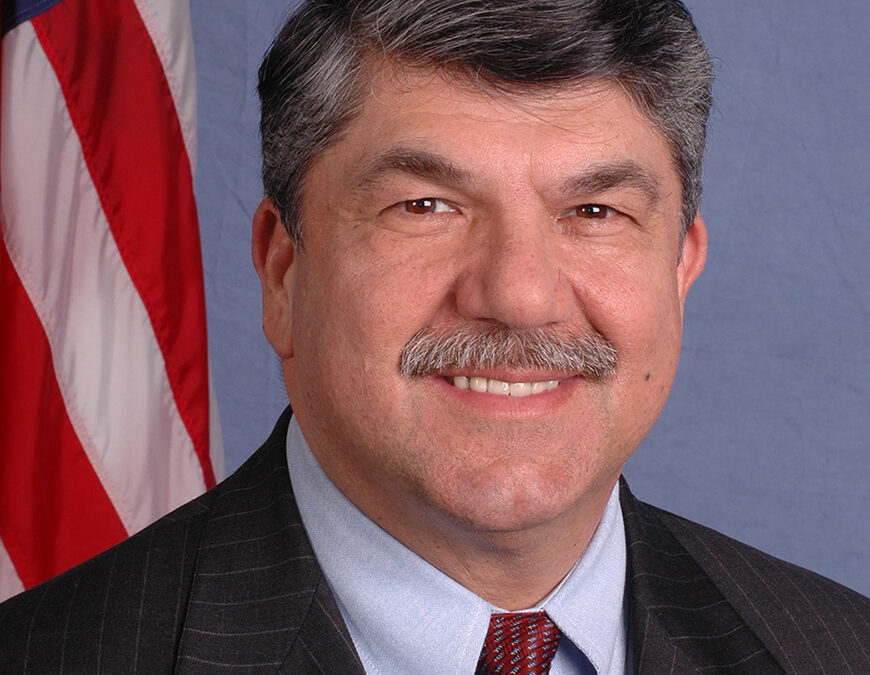
Aug 6, 2021
AFL-CIO President Richard Trumka, son of a U.S. coal miner and leader of the largest and most powerful organization of working people in the United States, believed strongly in the strength of global solidarity and stood staunchly with workers around the world. His passing on August 5 represents a loss to workers everywhere, and we join in mourning with the global labor movement and with all those whose lives he improved through his unwavering commitment to justice, worker rights and democracy.
“Rich advocated fiercely for worker rights in Myanmar, where a military junta has hunted labor leaders, and demanded U.S. trade policy toward everywhere from Mexico to Bangladesh prioritize workers over wealthy investors and hold governments accountable to abuse of workers rights,” says Solidarity Center Executive Director Shawna Bader-Blau.
“It was through President Trumka’s direction that during the Arab Spring, the AFL-CIO stood with the labor movements of Tunisia, Egypt and Bahrain as they took on corporate and government power to demand freedom and democracy for working people and trade unions. His leadership made a positive impact in the United States—and around world.”
The Solidarity Center benefited immensely from Richard Trumka’s long-serving leadership as chair of the Board of Trustees, where he shared his vision of a world in which workers join across borders to have a collective voice in achieving safe and dignified work by organizing and joining unions, balancing power toward greater equality at the workplace and within the global economy.
Early on in his role as Mineworkers president, Richard Trumka connected in solidarity with miners in apartheid South Africa who were fighting for fundamental human rights in a brutal regime. He helped organize the U.S. Shell boycott, challenging the multinational Royal Dutch/Shell Group for its continued business with South Africa. For these actions, Trumka received the 1990 Letelier-Moffitt Human Rights Award. In 2018, he became the first recipient of the World Peace Prize for Labor Leadership because of his life-long dedication to defending the rights of working women and men.
Richard Trumka never stopped breaking ground on issues of race and the rights of migrant workers. He used his privileged position to push others to confront racism and their reluctance to fully support new immigrants. His speech denouncing racism in the 2008 U.S. presidential election was heard around the world, as hundreds of thousands watched his galvanizing speech on social media. Throughout his life, he led the union movement in supporting the rights of migrant workers in their struggle for recognition at the workplace and throughout society.
Coal miner, union leader, champion of global worker rights—union brother. The global union movement is forever richer for Richard Trumka’s leadership, unyielding sense of justice and passionate dedication to bringing about a world in which workers, together, achieve shared prosperity in the global economy.

Jul 29, 2021
On this year’s July 30 World Day Against Trafficking in Persons, a coalition of rights organizations including the Solidarity Center are highlighting widespread wage theft perpetrated against Southeast Asia’s migrant workers. Although this form of labor exploitation has been thrown into stark relief during the COVID-19 pandemic, it is a long-standing problem in the region.
“Wage theft is a crime against humanity. If the global pandemic can be overcome, why not wage theft?” says Plantation Rural Education and Development Organization (PREDO) Sri Lanka Executive Director Michael Joachim.
The Justice for Wage Theft campaign is demanding governments address wage theft perpetrated against millions of migrant workers in the wake of the pandemic—including those who voluntarily returned home or were forcibly repatriated, often after employers unilaterally severed their contracts and stopped paying them their earned wages. Many such returnees now find themselves trapped in debt bondage to labor recruiters to whom they owe money on interrupted contracts and, sometimes, for emergency air fare, putting them at risk of labor exploitation. Debt bondage is one of the most prevalent forms of forced labor worldwide.
“The campaign is asking that indebted returnees be protected from exploitation and that migrant workers who returned home in fear for their lives receive their earned wages for work they completed,” says regional migrant rights expert and Solidarity Center Senior Program Officer Miyuru Guansinghe.
The Justice for Wage Theft’s website highlights coalition members’ work and provides a mechanism for collecting wage theft cases and signatures on a public petition for a just compensation mechanism. Coalition members are ASEAN Services Employees Trade Union Council (ASETUC), Cross-Regional Center for Refugees and Migrants (CCRM), Lawyers Beyond Borders, Migrant Forum in Asia (MFA), South Asian Regional Trade Union Council (SARTUC) and the Solidarity Center.
In two reports covering the period December 2019 through June 2021, the campaign documented more than 1,800 wage theft cases perpetrated against people migrating from Bangladesh, India, Indonesia, Nepal, Pakistan and the Philippines to work in agricultural, domestic, construction and other sectors in Bahrain, China, Kuwait, Lebanon, Malaysia, Maldives, Oman, Philippines, Qatar, Saudi Arabia, Sri Lanka and the United Arab Emirates. Volumes 1 and 2 of “Crying Out for Justice: Wage Theft against Migrant Workers” include hundreds of cases identified by the Solidarity Center during direct interviews with affected workers in five Sri Lankan districts.
Wage theft is an indicator of forced labor under International Labor Organization (ILO) standards, says MFA. Under ILO standards, states must develop wage-theft-eradication measures and effective justice mechanisms. Workers are also entitled to effective remedies—including prosecution of employers under criminal law, and payment of earned wages and other compensation, and governments must ensure workers’ wages are paid regularly and a final settlement of all wages is effected upon termination of an employment contract.
Forced labor is the most common result of human trafficking, with an estimated 25 million people trapped in often slave-like conditions. A United Nations report last year found that the percentage of trafficking victims exploited for forced labor is increasing over time and that surveyed countries reported a threefold increase in the number of trafficking victims from 2003 through 2018. Forced labor generates up to $150 billion a year in illegal profits for traffickers—including $51.2 billion made illegally from forced labor exploitation in domestic work, agriculture, forestry, fishing, construction, manufacturing, mining, utilities and other industries, says the International Labor Organization (ILO).
“Human trafficking is a violation that should have no place in civilized society, ” says Saviya Development Foundation Training and Program Director Thushara Senanayaka.
The Justice for Wage Theft campaign is an offshoot of MFA’s regional network of nongovernmental organizations, associations and trade unions of migrant workers, and individual advocates in Asia who are working to protect migrant worker rights and welfare. Such initiatives include efforts in coalition across the globe to improve COVID-19 vaccination access for migrant workers and their family members.
You can support the Justice for Wage Theft campaign by completing its online petition, “Say Yes to Justice!”
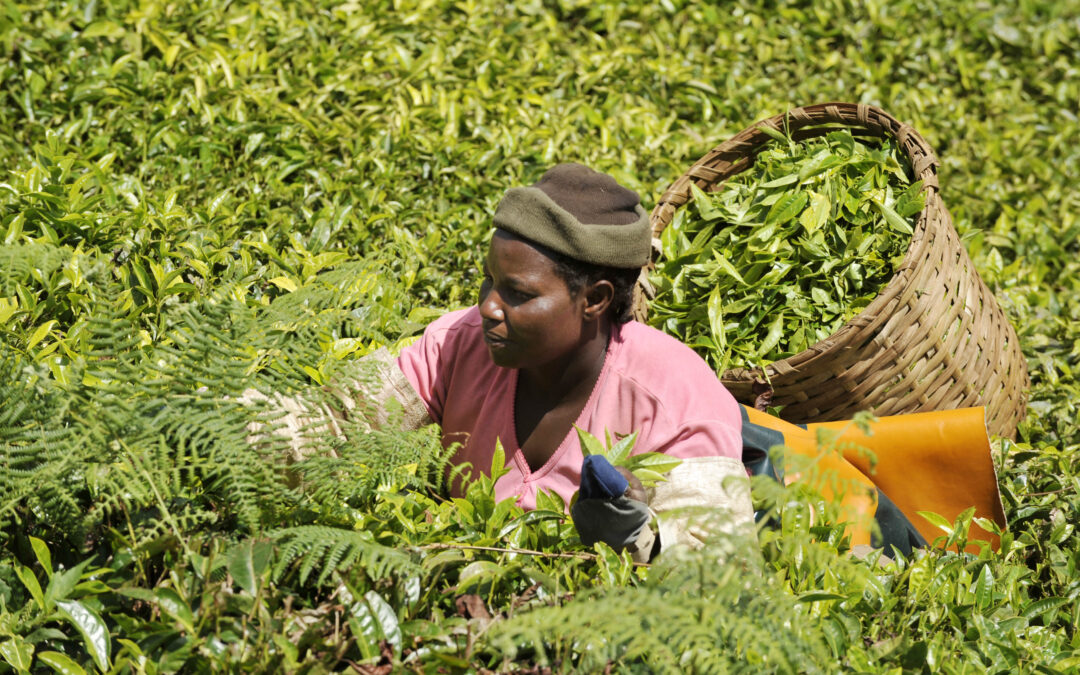
Jul 28, 2021
In a global context where most working people and their communities are being denied a say in their future according to the International Trade Union Confederation (ITUC), Kenya’s Central Organization of Trade Unions (COTU-K) is effectively engaging government and policy makers to represent the needs of working people in the development of climate change solutions.
“[N]early nine out of ten countries are… not using social dialogue,” says ITUC General Secretary Sharan Burrow about climate plans submitted by governments under the Paris Agreement on Climate Change. As defined by the International Labor Organization (ILO), social dialogue structures and processes are tools for promoting consensus building and democratic involvement among the main stakeholders in the world of work—representatives of governments, employers and workers—on issues of common interest.
In Kenya, the climate crisis is prompting more frequent and prolonged droughts, erratic rainfall, intermittent flooding, water scarcity and increased incidence of climate change-related diseases—which threaten people’s jobs and livelihoods in all sectors, especially agriculture, fishing, forestry, mining and tourism. Unions, says COTU-K, must take their place at the table to advance worker-centered climate solutions toward a sustainable and thriving future.
COTU-K, a Solidarity Center partner, has successfully represented the interests of Kenya’s most vulnerable citizens in multiple fora and processes, contributing to the country’s Climate Change Response Strategy, the National Climate Change Action Plan, Climate Change Act and, most recently, in the 2020 process of updating Kenya’s Nationally Determined Contributions (NDCs) under the Paris Agreement to include just transition elements. COTU-K is also a member of Kenya’s National Climate Change Council—a body chaired by President Uhuru Kenyatta that advises government on the development of climate change policies and legislation.
COTU-K’s just transition program is rooted in its vision of climate justice, which advocates for a low-carbon development path and actions to address climate change while simultaneously prioritizing the creation of good jobs and ensuring social justice, rights and social protection for all.
“Climate justice [will ensure] that the environmental and social costs of unsustainable production and consumption are met by the economic agents responsible for them,” and prevent the burdens of changes benefiting everyone being placed disproportionately on a few or the most vulnerable, says COTU-K.
The development of climate-related programs and policies requires active and informed public participation, says COTU-K. To this end, COTU-K is pursuing climate-justice coalitions with like-minded organizations, supporting climate and labor justice at both national and county levels of government, and providing worker-to-worker and union-to-union exchanges on effective climate justice strategies.









